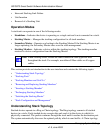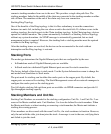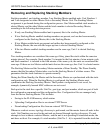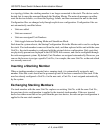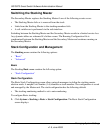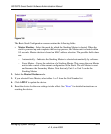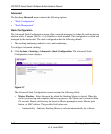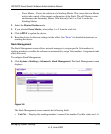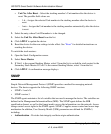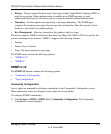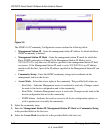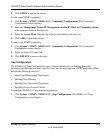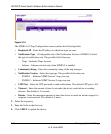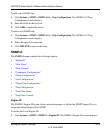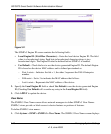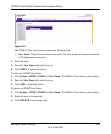
GS700TS Smart Switch Software Administration Manual
3-17 Managing System Settings
v1.0, June 2009
• Unit No. After Reset – Select the stacking member’s Unit number after the device is
reset. The possible field values are:
– 1-6 – Assigns the selected Unit number to the stacking member after the device is
reset.
– Auto – Assigns the Unit number to the stacking member automatically after the device
is reset.
2. Select the entry whose Unit ID number is to be changed.
3. Select the Unit No. After Reset from the list.
4. Click APPLY to update the device.
5. Reset the device for the new settings to take effect. See “Reset” for detailed instructions on
resetting the device.
To switch the stack masters:
1. Open the Stack Configuration screen.
2. Select Force Master.
3. If Unit 1 is the current Stacking Master, select 2 from the list to switch the stack control to the
Secondary Stack Master. If Unit 2 is the current Stacking Master, select 1 from the list.
4. Click APPLY. A confirmation message displays.
SNMP
Simple Network Management Protocol (SNMP) provides a method for managing network
devices. The device supports the following SNMP versions:
• SNMP v1 and v2c
•SNMP version 3
The SNMP agents maintain a list of variables that are used to manage the device. The variables are
defined in the Management Information Base (MIB). The SNMP agent defines the MIB
specification format, as well as the format used to access the information over the network. Access
strings control access rights to the SNMP agents. SNMP v3 applies access control and a new traps
mechanism. In addition, User Security Model (USM) parameters are defined for SNMPv3,
including:
• Authentication – Provides data integrity and data origin authentication.



